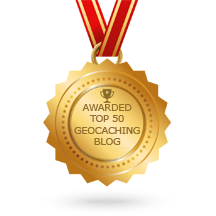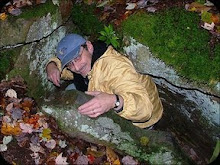Since most geocache containers are plastic, the best available information seems to say the virus can last as long as three days on a plastic cache container. The virus however decays once it is on a container. In the case of plastic, every seven hours, the virus strength deteriorates and becomes less dangerous to people until it is completely dead after 3 days. It is also important to remember that the virus needs moisture to remain viable. If it dries on a surface, it will die.
Cleaning a geocache container is nobel, but probably useless. There are few chemicals that are effective in destroyng the virus. If you want a list, check the EPA's N-list. Make certain you are looking for products that are effective for Human Coronavirus. Be certain to also look at how much contact time is required for the solution to stay on the surface to destroy the COVID-19 virus. The list changes every few days (it's part of my work to be aware of this). Most of the items on the list are items which are generally not available to the public. Even if you could purchase them, they are no longer in stock. There are two possible exceptions, some Lysol products and bleach which is shown on this list by its chemical name sodium hypochlorite. Bleach solutions require longer residence times than some chemical products, but liquid bleach is still generally available. Beware of product safety warnings if you choose this or any of these materials.
Simply wiping a geocache container generally will do nothing.
So what can you do to protect yourself?
Maintain social distancing. This means you shouldn't be caching with your best caching friends unless you live with them. Keep six feet or more from others you meet in a park. Air droplets from other cachers or other park visitors are still your greatest risk.
Don't touch your face with your hands when out caching. The virus needs a path to your body. Most common is eyes, mouth, and nose. This is a respiratory virus so eyes, nose and mouth are the pathways into your body. Wash your hands when you are done caching.
We enjoyed a break in the rain yesterday to complete a super Adventure Lab at Lakeview Cemetery. The cemetery is a haven for walkers and was busy yesterday, but it is very large and great for social distancing. The visitors were respectful of each other. If you are in or near northeast Ohio, this is a great way to spend some time outdoors and make a few finds while staying safe.






















No comments:
Post a Comment